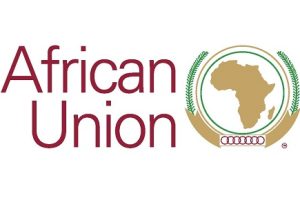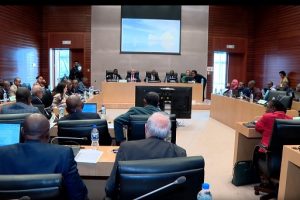As Ethiopia is going through defining time confronting its longtime foe, the terrorist TPLF group, some western countries have been standing on the wrong side of history. The West has been putting unwarranted pressure on Ethiopia increasingly becoming a sympathizer of the reneged group. Some countries have in fact openly breached the sovereignty of the country. Humanitarian aid and saving a nation have become the pretext to external intervention.
The interferences of westerners however further destroyed countries like Yemen, Afghanistan, Syria, Libya, and others. External interventions have been pushing conflict-torn nations into a bottomless pit. Under the aegis of saving a nation, superpower nations have been destabilizing a number of nations worldwide. The West this time is committing the same mistake under the disguise of humanitarian intervention. While there have been biased and incoherent policies towards Ethiopia, some other countries are standing up for the truth at the United Nations Security Council.
No matter how hard westerners tried, some member states of the Security Council have stood up for the truth and shown truthfulness and solidarity with Ethiopia more than ever before. Ethiopia will not fail to recall the role the aforementioned nations played in guarding Ethiopia and standing for the truth.
Recently, Deputy Permanent Representative Anna Evstigneeva at UNSC briefing on peace and security in Africa said, “We are convinced that adoption of illegal unilateral sanctions, threats of such sanctions or refusal to provide economic assistance is counterproductive and will only worsen the situation for the already-suffering ordinary people instead of bringing about reconciliation.”
She further stated that there is no alternative to supporting national and regional efforts aimed at ending the intra-Ethiopian military confrontations and advancing the dialogue to restore peace and gradually achieve social and economic stabilization in Ethiopia. At various points in their history, the Ethiopians have repeatedly demonstrated that they are capable of living in interethnic harmony and building their common state. The general election this year, held in peace and in line with democratic standards, reaffirmed this idea.
A high level of support for the government was demonstrated at recent mass demonstrations in Addis Ababa.
Hostilities in Dessie and Kombolcha, where a great number of refugees and IDPs had lived even before the conflict, led to an upsurge in refugees and IDPs. The number of civilians in need of humanitarian aid has already reached 7 million people due to the repeated attacks of the Tigray People’s Liberation Front. Humanitarian aid to all regions of Ethiopia must be increased. We continue to insist that such aid must be provided in close coordination with the sovereign government and in strict compliance with the basic guiding principles of the UN.
As we have said previously, the divisions in Ethiopia run deep and have a complex historical context. Moreover, the situation in the country carries the significant negative potential for the region as a whole. That is why we have been urging all stakeholders capable of influencing the situation, as well as the media, to take a responsible approach to avoid escalating the international rhetoric and fueling the already spiraling ethnic strife.
Of particular concern is the deteriorating humanitarian situation in the areas affected by the fighting.
The ongoing foreign pressure is spearheaded by the U.S. In this regard, some experts are denouncing Washington’s biased foreign policy.
The Biden Administration is unhelpfully inserting itself into this rivalry by taking the side of the group that it considers most vulnerable: a highly disliked but still ambitious minority group that could easily fall victim to gross retaliatory measures, California Law School’s graduate Zewdineh Beyene (Ph.D.)
“The Biden Administration’s approach to Ethiopia intends to protect what was perceived to be a vulnerable minority group, which currently resulted in more grievances and losses to more people, according to a law expert familiar with the issue.”
Noting the policy of supporting what at first looks like the most vulnerable group seems necessary and obvious, he said that Biden’s approach to the current Ethiopian government lacks context and nuance, he said adding “it is not surprising that an armed group would craft policies around this type of rhetoric. What is surprising is that Western governments would make policies on the basis of such preposterous claims.”
“Why is Biden’s Ethiopia policy so bad? The answer is because of a fundamentally flawed reading of the existing balance of power in Ethiopia.”
He further claimed that the U.S. policy of coercing Ethiopia through economic and diplomatic means has only had the effect of encouraging the TPLF to push further in hopes that the Government will eventually relent. “But it won’t, and can’t. Instead, more and more blood is being spilled.”
“If the Biden Administration has a genuine desire to help Ethiopia get back on track towards a democratic transition, it must recognize that TPLF’s military advantage is necessarily temporary and cannot infinitely be used to influence or affect the conduct of a government by intimidation or coercion.”
The scholar emphasized that if the Biden Administration wants to do something about Ethiopia’s conflict, it must review its year-long policy of being on the side of the group that is most likely to prolong the misery of Ethiopians. “A policy that encourages this directly, indirectly, explicitly or tacitly will most certainly prolong Ethiopia’s instability.”
The West’s much-acclaimed commitment for democracy and rule of law puts in serious question by standing against the government elected by the peaceful and democratic polls. “If the world doesn’t stand with the legitimately elected leader, there is no pure democracy in the Western countries so we need work to change such things around the globe,” Balsillie School of International Affairs Director and International Affairs Professor Ann Fitz- Gerald said in her recent interview with Hermela Aregawi.
Noting Ethiopia’s political turmoil or economic sanction would touch other Africans, she called on African states to struggle on these issues. “In diplomatic terms, the Ethiopian leader is vilified; Ethiopia is vilified, vilified for being unable to get the support from western countries.”
It is evident that Western powers, despite their much-publicized enthusiasm to fight global terrorism, do not take any action on the TPLF clique which is being designated a terrorist entity by Ethiopia’s federal parliament. “What is a real arrogant act in permitting the killing, displacing and torturing of the civilian community especially children and women of the nation?”
The scholar further pointed out that the terrorist faction attacked the northern command which had several military bases through a long time plan last November. Universities and other critical infrastructure were demolished and certain ethnic groups were also targeted by TPLF’s aggression.
BY ADDISALEM MULAT
THE ETHIOPIAN HERALD NOVEMBEBER 16/2021





